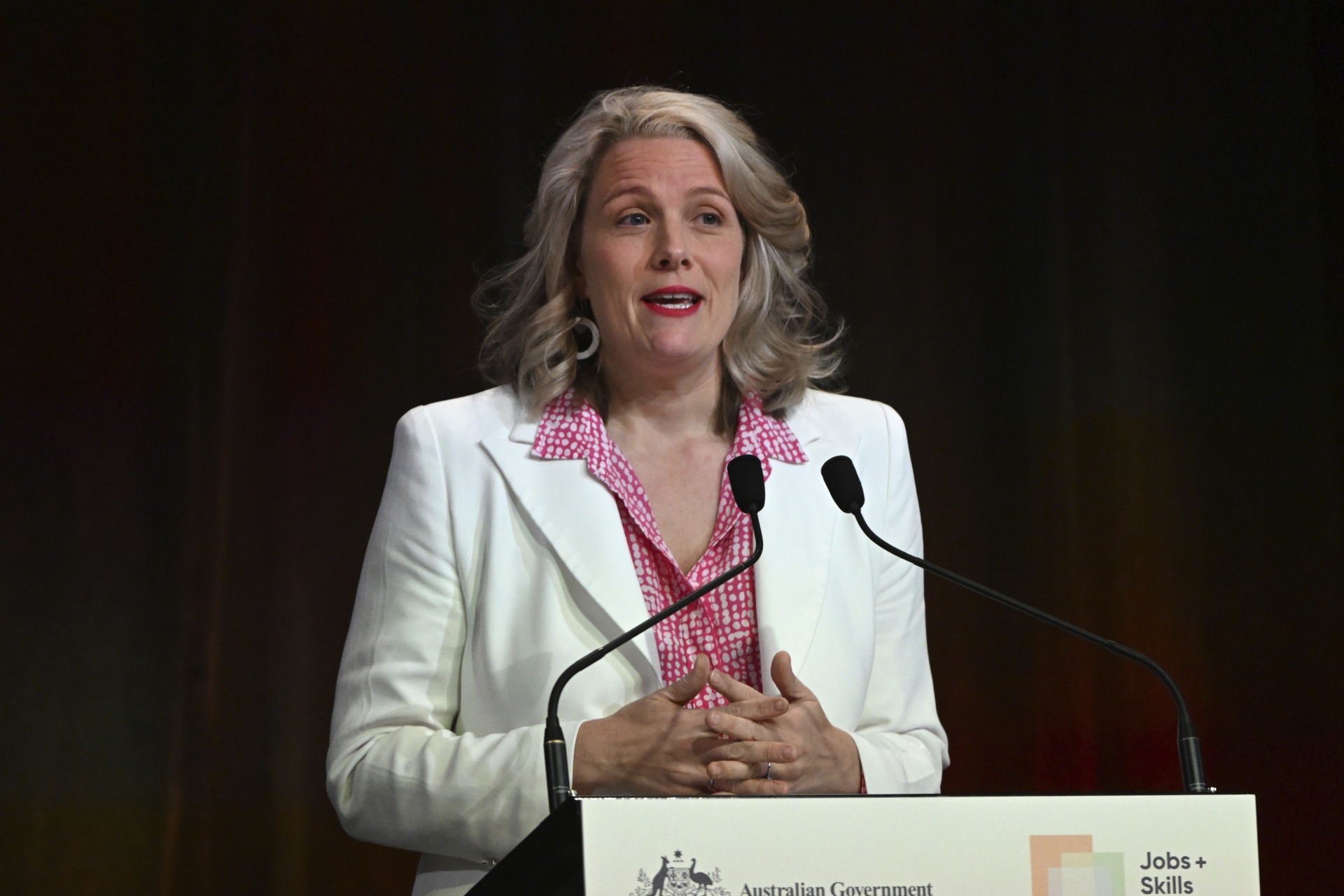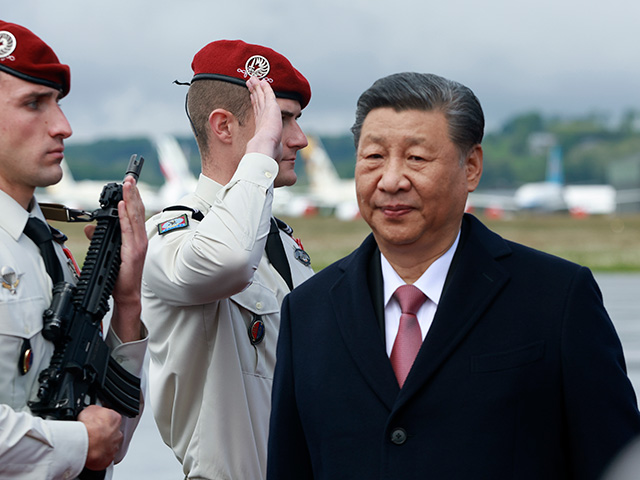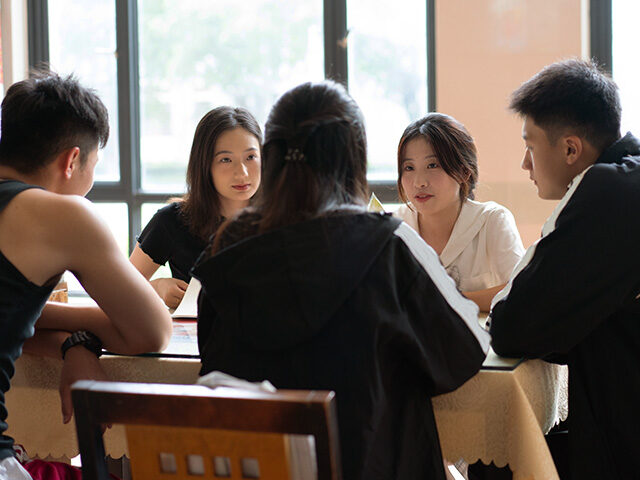Australian Home Affairs Minister Clare O’Neil announced on Monday that visa fees for international students have been more than doubled – a transparent, if not explicit, attempt to clamp down on heavy migration, especially from China.
Effective on Monday, Australia’s student visa fee rose from $710 in Australian dollars (about $472 U.S.) to a whopping $1,600 (about $1,068 U.S.). The country also implemented a new rule preventing people with temporary visitor or graduate visas from applying for a student visa while still in Australia.
WATCH — Dem Sen. Warner: Biden and I Did Bash Trump’s Tariffs, but China Doesn’t Play Fair:
The U.S. student visa fee is currently $110. The total package price for application and fees works out to about $764 in the United States, $930 in the United Kingdom, and just $164 in Canada.
“The changes coming into force today will help restore integrity to our international education system, and create a migration system which is fairer, smaller and better able to deliver for Australia,” O’Neil said.
Australian officials said the increased revenues from the higher fees would be spent on migration and education initiatives, such as increased vocational training.

Australia’s Home Affairs Minister Clare O’Neil speaks at the Jobs and Skills Summit in Canberra, Friday, Sept. 2, 2022. (Mick Tsikas/AAP Image via AP)
The South China Morning Post (SCMP) described Australia’s student visa clampdown as “the latest move by the government to rein in record migration that has intensified pressure on an already tight housing market.”
Migration rose to record levels after Australia lifted its coronavirus restrictions, surging by 60 percent in the past year alone. A great deal of that immigration surge was caused by Chinese students pouring into Australian universities, as an Education Ministry report released in February made clear.
Prime Minister Anthony Albanese’s administration strongly hinted in February that it was time for Australia’s universities to become less dependent on Chinese students and to give immigrant students from other countries more of a chance — or “diversifying markets to avoid overreliance on a small number of countries,” as the Education Ministry report put it.
WATCH — Blinken: There’s Evidence China Is Trying to “Influence and Arguably Interfere” in Our Elections Despite Biden’s Warning:
“While China remains Australia’s major two-way trading partner and single largest source of international students, India is now the world’s most populous nation with the largest youth population in the world. This presents considerable opportunities for Australia,” the report said with remarkable candor.
Australia’s visa system attracted some controversy in May when a string of Chinese students and researchers were denied visas because the government said they could be involved in missile and rocket research, even though they did not violate any of Australia’s student visa policies. Australia thus far lacks firm policies on university research that could impact national security, unlike the United States and its other Western allies, so a great deal of official discretion is involved in making such visa decisions.
Some Chinese students complained to Human Rights Watch (HRW) last month that recent waves of Chinese students arriving at Australian universities have been filled with Chinese Communist Party loyalists who bully pro-democracy students and keep them under surveillance for the Party.
HRW cited three confirmed cases in which Chinese police harassed the families of students studying in Australia because other Chinese students reported their pro-democracy political activity to Beijing.

Chinese President Xi Jinping walks past soldiers as he arrives on May 7, 2024, at the Tarbes airport, southwestern France. (AP Photo/Aurelien Morissard)
“Fear that what they did in Australia could result in Chinese authorities punishing or interrogating their parents back home weighed heavily on the minds of every pro-democracy student interviewed,” HRW said.
Concerns have been growing since the pandemic that China is gaining an unhealthy degree of influence over Australian academia. Some critics reacted to the student visa fee increases by warning that Australia’s university system cannot afford to lose revenue by driving away Chinese students who can easily take their educational business elsewhere.
WATCH — CNN’s Phillip: I Don’t See Point of GOP Saying They’ll Boot China and Confucius Institutes, Not “Linked to Real Policy”:
“Four in 10 visas are now being refused. It becomes a lottery ticket – why would you waste that much money when you have more surety of going to the USA?” International Education Association chief executive Phil Honeywood told the UK Guardian on Sunday.
“Already as a result of the caps announcement we have massive job layoffs happening. Many other providers are terminating employees. This isn’t just a massive hit to the Australian economy but real people with real jobs,” Honeywood argued.
“This is not good for our economy or our universities, both of which rely heavily on international student fees, or the communities who benefit from the skills, knowledge and culture of the students who choose to study in Australia,” said Universities Australia chief executive Luke Sheehy.
“Yet again our international students are being used as cash cows to prop up the economy, the national research effort and now to fund other government initiatives,” complained Vicki Thomson, head of an association of Australian research universities called the Group of Eight.
Skills and Training Minister Brendan O’Connor, who announced the student visa fee increase in a joint press conference with O’Neil and Education Minister Jason Clare, said the higher fees and new rules were necessary to crack down on “unscrupulous providers who are looking to take advantage of international students.”
“Australia has a world-class education sector, one that draws international students from around the globe, so we need to make sure all students are getting the quality of education they pay for,” O’Connor said. Other officials said the higher fees and reduced immigration were needed to ease the pressure on Australia’s housing market.

COMMENTS
Please let us know if you're having issues with commenting.